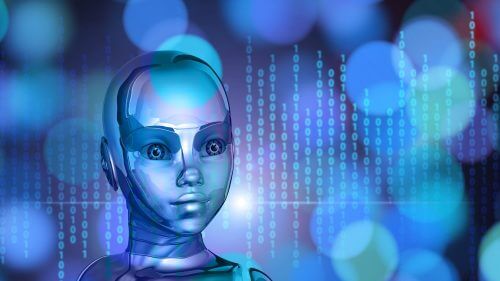Well, so here it is: an artificial intelligence has created an offspring of itself, and it is sweet, beautiful and well-functioning, thanks for asking

It will certainly not surprise you to find out that the company behind the development is Google. Google unveiled a few months ago the "mother intelligence" known as AutoML - "automatic machine learning"[1]. From now on we will call her Bima, which is an abbreviation of Bina and mother. Bima performs a simple and complex operation at the same time: the humans make it clear to her what they need - for example, that they want an artificial intelligence to recognize humans in photos for them - then Bima offers several 'offspring' that can do the job. Each of these offspring is a different regulated way of routing information through artificial neural networks, in a way that will produce a result that Bima thinks will be meaningful.
So far, all well and good, but these primordial descendants are - how to say - bad at the task given to them. Their 'brain' is just not tuned right. And so Bima is now starting the process of gradual improvement. She gives them assignments - these are the humans in the picture! - and examines how they function. She learns what works and what doesn't, and after each round of such studies, she exterminates her previous offspring (cruel, I know) and invents improved new ones. And so she repeats the process thousands of times, over and over again, until the 'final' product that was recently published on Google's blog: an artificial intelligence that is able to recognize people and objects in images, better than artificial intelligences developed by humans[2].
It is important to understand that we are only at the beginning of the road in terms of Bima's development. A similar engine could be used by us in the future to create software and algorithms in a wide variety of fields. In fact, it is quite possible that through simpler interfaces, any ordinary person could create for himself (that is, instruct Bima to automatically create for him) an artificial intelligence that performs certain actions that are important to him: sorting cucumbers on the farm[3], for example, or driving a five-legged robot that Developed in a garage (by running repeated computer simulations of the way such a robot should control its limbs)[4].
The more interesting possibility is that Bima could also incorporate feedback from a human source to develop its offspring. A mother who needs to develop artificial intelligence to create sad and mournful melodies, for example, can send her offspring's compositions to humans around the world for review ("Listen to the piece for half a minute, and rate how much it touched your heart!") at zero cost, and improve the offspring each time. In this way, it is possible to automatically create more sophisticated artificial intelligences even in subjects that cannot be easily quantified.
But let's talk about what scares everyone: that such artificial intelligence will get out of control. the truth? This is indeed a problem. Not because I'm afraid that artificial intelligence to recognize people in photos will lose its reins and try to take over the world, but because the process of developing the offspring works in an evolutionary way, and without the direction of humans, or a full understanding of why the final product works the way it does. This means that if we choose in this way to produce artificial intelligence that will direct the traffic on the roads, for example, we have to take into account that it may make decisions according to a past optimization process that sanctifies the flow of traffic on the roads - but places less emphasis on preserving the lives of passengers. And so, such an artificial intelligence could produce for us traffic management models that would be very effective, but would cost the lives of several people every month. It may well be a good conversion rate - but we should at least be aware of the choices the AI makes for us!
In the end, the emergence of artificial intelligences that are able to program their own future generations, is a development that can further advance the field of computing and accelerate the rate of improvement. This is a welcome development - but as with any other technology, we must understand how to control it and make sure it fulfills the role we designate for it, but without harming basic human values.
Maybe we can put artificial intelligence on that too.
You are invited to read more about the future of artificial intelligence and robots in my new book "who control the future", in the selected bookstores (and those that are just fine).
Sources
- [1] https://research.googleblog.com/2017/05/using-machine-learning-to-explore.html
- [2] https://research.googleblog.com/2017/11/automl-for-large-scale-image.html
- [3] https://cloud.google.com/blog/big-data/2016/08/how-a-japanese-cucumber-farmer-is-using-deep-learning-and-tensorflow
- [4] https://www.extremetech.com/extreme/252242-googles-deepmind-teaches-ai-navigate-parkour-course

One response
Fortunately, very soon the software will be developed that will replaceRoey Tsezana in writing more interesting articles that are based on actual sources and not on guesswork.